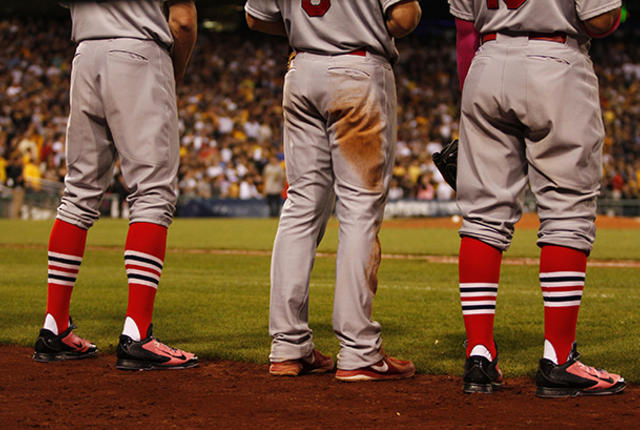What Is The History Of The 7th Inning Stretch?
If you work for eight hours, you probably take a break after four hours of work. If you were to run for an hour, the best time to grab some water would probably be a half-hour into your run. Yet for some reason, in the world of baseball, it’s become logical to give everyone a break 7 innings into the game, when there are only two-inning left to go. Is this really the optimal time for everyone to stretch their legs, grab another beer, and let the players catch their breath? Why is the 7th-inning stretch a baseball tradition, and why does it come in the seventh inning, anyway?

History of 7th inning stretch
You’d think that a sport that loves stories and legacies as much as baseball does would have a pretty great origin story for one of its most beloved traditions. Surprisingly enough, there’s no official, unanimously-believed story for how the seventh-inning stretch came to be.
One story involves America’s heaviest president, President William Howard Taft. If it were true, it would actually be the second baseball tradition he began, the first being the throwing of the first pitch by a POTUS. The story of President Taft and the seventh-inning stretch is slightly less majestic: legend has it that the big-boned president found himself uncomfortable sitting in a small chair for extended periods and rose to stretch out while the teams switched positions in the seventh inning. And, since he was the president, the rest of the audience followed suit out of deference.
Another story dates back even farther, taking place twenty years or so before Taft became president. This version gives credit to Brother Jasper Brennan, manager and namesake of the Manhattan College Jaspers. Brother Jasper wasn’t just the team manager; he was also the Prefect of Discipline, meaning that he was constantly dividing his attention between his players and the young men watching from the bleachers. He was notoriously strict, demanding that his students stay seated throughout the entire game. When Brother Jasper noticed the crowd growing significantly uncomfortable over the course of a hot June day, he called a time-out in the middle of the seventh inning and told the crowd in the stands to take a few minutes to stretch their legs. As the story goes, it quickly became a Manhattan College tradition and visiting teams soon picked up the tradition, bringing it to their own hometowns, until it eventually hit the majors.
And there’s still another story to think about. This one is about Harry Wright, Baseball Hall of Fame inductee and a major figure on the 1869 Cincinnati Red Stockings. His biggest legacy, though, is a single letter written to a friend, in which he describes what might be considered the first seventh-inning stretch: “The Spectators all rise between halves of the seventh, extend their arms and legs and sometimes walkabout. They enjoy the relief afforded by relaxation from a long posture upon the benches.”
